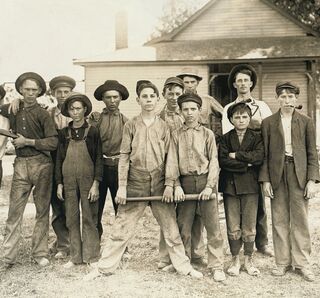Friends
Does Your Social Environment Need Cleanup?
Who you have in your social world shapes who you are.
Posted June 29, 2020 Reviewed by Lybi Ma

We all want a great deal on a house, but not when it’s a steal because the next-door neighbor is Acme Toxic Chemicals.
Yet, most of us are far less careful about our “social neighborhood,” the friends in our lives. We’re prone to keep toxic friends around—along with friends who aren’t terrible people but who just aren’t that good for us.
That’s problematic because our friends have an effect on who we are. They influence our thinking, habits, and behavior, often in ways we don’t recognize.
Frequently, our friends are people who showed up in our lives and stuck around rather than friends we actually chose. That’s hard for us to admit, because we like to think of ourselves as wise critical thinkers with good values.
However, research by psychologist Mitja Back suggests we tend to form friendships through "mere proximity" —like being next-door neighbors or being seated near each other in a college class.
Understanding that our friends often tumble into our lives without our choosing them is the first step in deciding whether they should continue to be there.
Perhaps that seems mean or disloyal.
But it’s important to recognize that we are context-oriented beings. Comparison with and critique by others in our lives shapes our behavior. Having people of good character around us influences us to act with good character. When friends are high achievers, it can motivate us to try harder.
In other words, it’s vital to choose your friends, even (per Back’s research) if you have to do it after the fact: after they’ve been in your life a while.
Choosing your friends starts with choosing who you are. Just as we fall into friendships, we tend not to plot out the values we live by; we just live and believe we have values. If someone ask us what our values are, we’ll mumble some stuff out about, um...honesty and being kind...but we often can’t really get too specific.
As I explain in my book, "Unf*ckology: A Field Guide to Living with Guts and Confidence":
To choose your values, forget about how you’ve gotten in the habit of behaving. Instead, think about the ideal you. What sort of person do you want to be? And what would be the bedrock values guiding that person’s behavior?
It might help you to see my top values—which are:
•Courage
•Wisdom
•Kindness/making the world a better place•Freedom/liberty/free speech
•Learning/growth
•Fairness/integrity/personal responsibility
•Honesty (but also judicious honesty)
•Perseverance
•Gratitude
•Humor
•Seizing life (my “car crash principle” from chapter 1)In putting together your own values set, feel free to “steal” any or all of mine that work for you. You can also google “lists of values”; lots of examples will pop up.
However, I do think there are two biggies—two primary values— that we all need, in general and in order to apply the rest of our values. These two are courage and wisdom. Courage allows you to do what you feel should be done, and wisdom allows you to have a sense of what exactly that might be.
After choosing your own character—the values to guide your actions—hold the people in your life up to your standards and see how well they match. (Do the same for people you meet.)
This doesn’t necessarily mean giving the boot to imperfect people (a category that includes any of us who can fog a mirror). It means choosing friends who generally share your values and who make a solid effort to live by them. (It’s likewise important to keep holding yourself to your standards and being honest when you fall short so you can take steps to do better.)
Ultimately, your social neighborhood is like a gym for your best self, where you and your friends make one another vastly better because you're in it together. Best of all, over the years, these are the kind of friendships that really mean something.
Disclosure: “As an Amazon Associate I earn from qualifying purchases.”
References
Back, Mitja D., Stefan C. Schmukle, and Boris Egloff. "Becoming friends by chance." Psychological Science 19, no. 5 (2008): 439.
Alkon, Amy. Unf*ckology: A Field Guide to Living with Guts and Confidence. St. Martin's Griffin, 2018.


